
Need more proof of the role Facebook is playing in the distribution of news? Among Americans born between 1981 and 1996 — a.k.a millennials — 61 percent get political news from Facebook in a given week, versus 37 percent who get it from local TV. That’s according to a new Pew Research Center study released this morning.
That’s also the inverse of how that divide looks for baby boomers. Among that born-between-1946-and-1964 crowd, 60 percent of boomers said they got news from local TV and 39 percent said they found news on Facebook. For those in between, Gen X, it’s about even: 51 percent for Facebook, 46 percent for local TV.
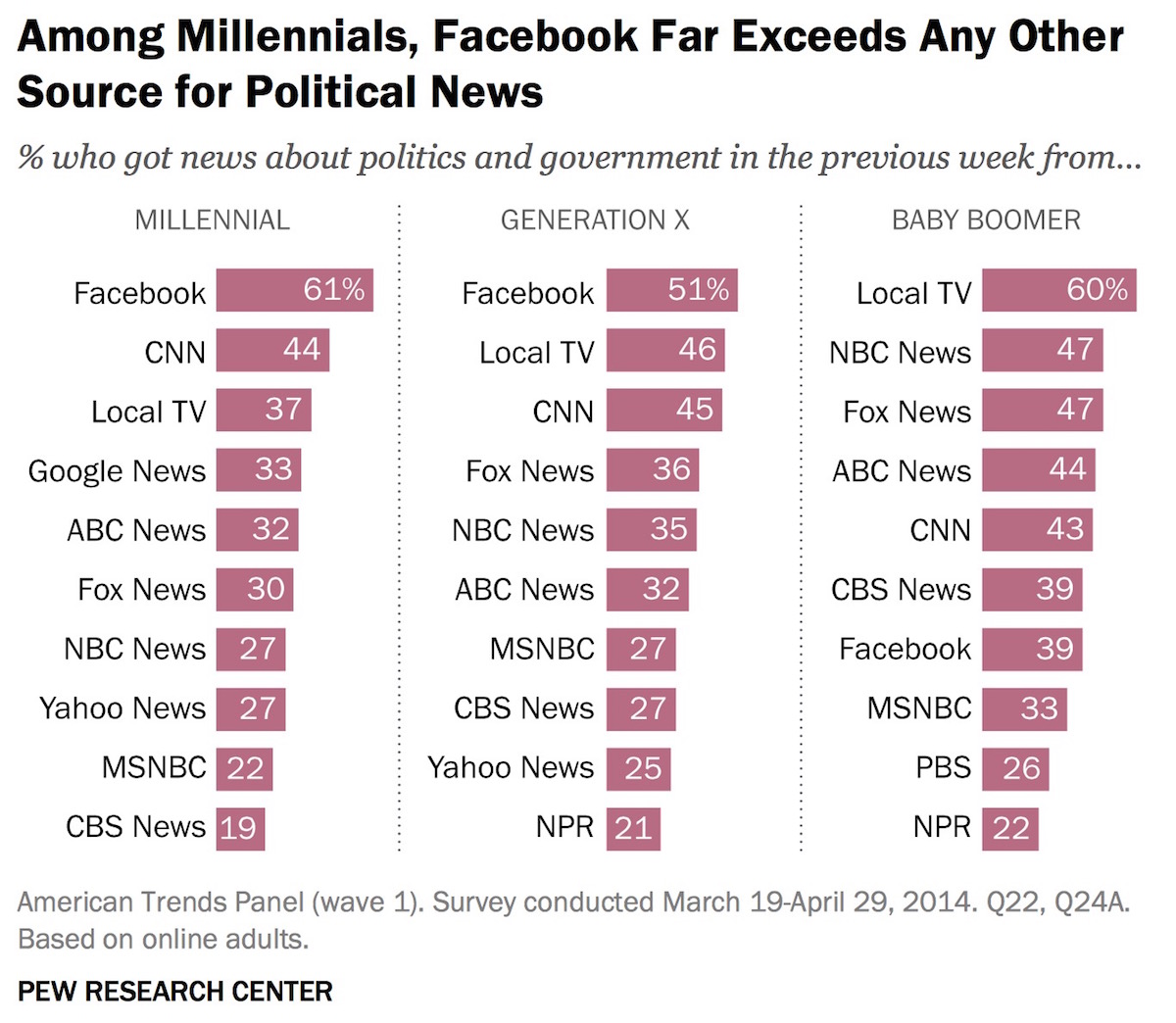
For this study, Pew surveyed about 3,000 Americans to ascertain their habits for consuming political news. “As the research continues, these data suggest that younger and older generations espouse fundamental differences in the ways they stay informed about political news — differences that are of particular interest as the 2016 election campaigns ramp up,” the study said.
Of the three generations surveyed, millennials said they received more political content in their Facebook news feeds. Twenty-four percent of young users said at least half of the posts in their feeds are political in nature, compared to 18 percent of those in Gen X and 16 percent of baby boomers who said at least half of their feed was political.
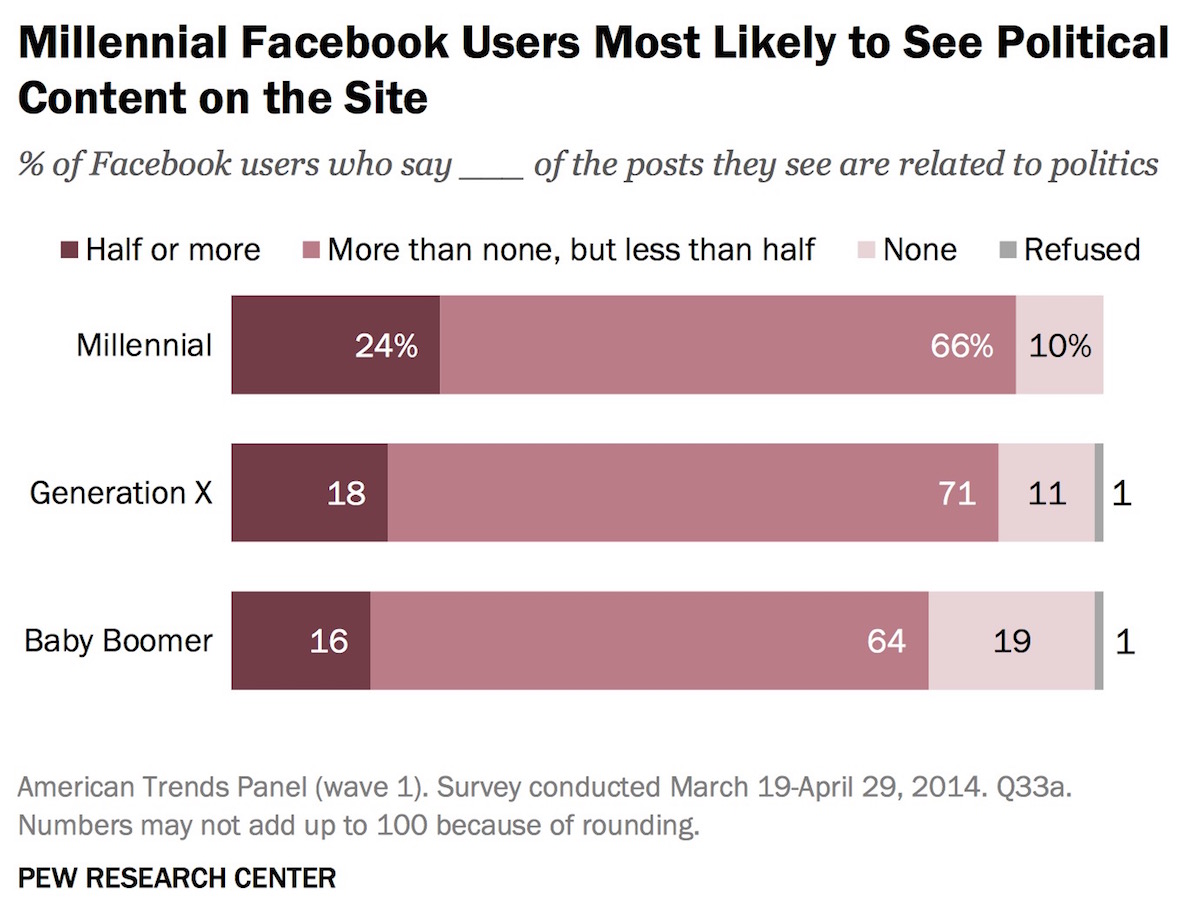
While younger users get more news from Facebook, they are less familiar with many sources of news than their older counterparts, the survey found. The survey asked about familiarity with 36 different news sources — ranging from The New Yorker to Breitbart — and millennials had heard of half of the outlets at “substantively lower rates” than the older cohorts.
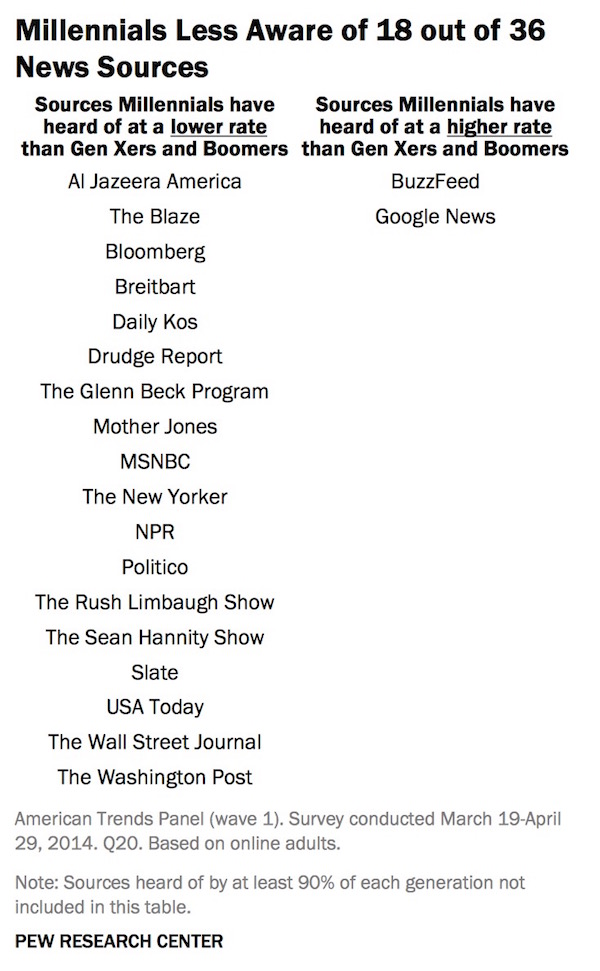 Conversely, there were only two news sources about which millennials were more aware than their elders: BuzzFeed and Google News. A third of millennials find news on Google News, compared to 18 percent for those in Gen X and 15 percent of baby boomers.
Conversely, there were only two news sources about which millennials were more aware than their elders: BuzzFeed and Google News. A third of millennials find news on Google News, compared to 18 percent for those in Gen X and 15 percent of baby boomers.
While millennials are less interested in political news than older Americans, Pew notes that this age breakdown isn’t new; people between the ages of 18 and 29 have expressed less interest in political news since at least 1996 (and, one would imagine, earlier).
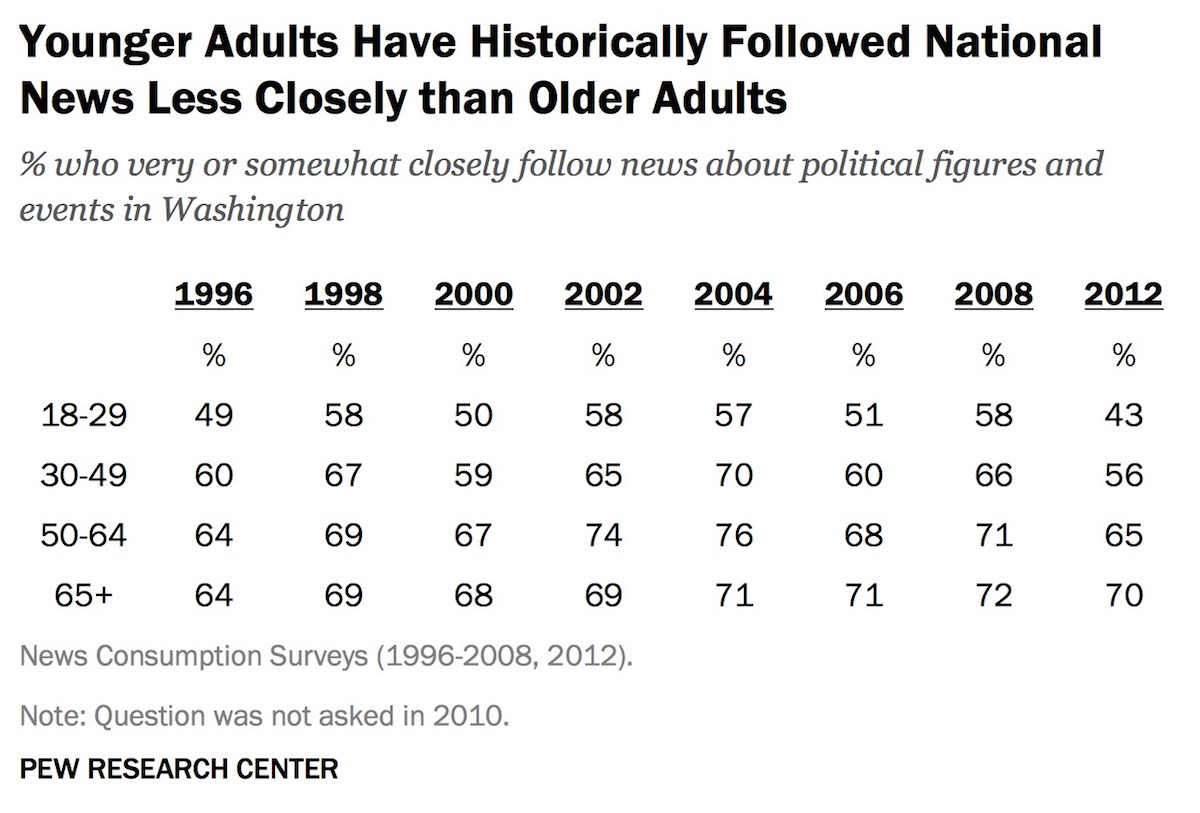
Despite their differences in media consumption, all generations are generally about as trustful of news organizations they’ve heard of. About 40 percent of each generation trusts the outlets they’re familiar with, 20 or so percent distrust their news sources, and 40 percent are neither trustful or distrustful:
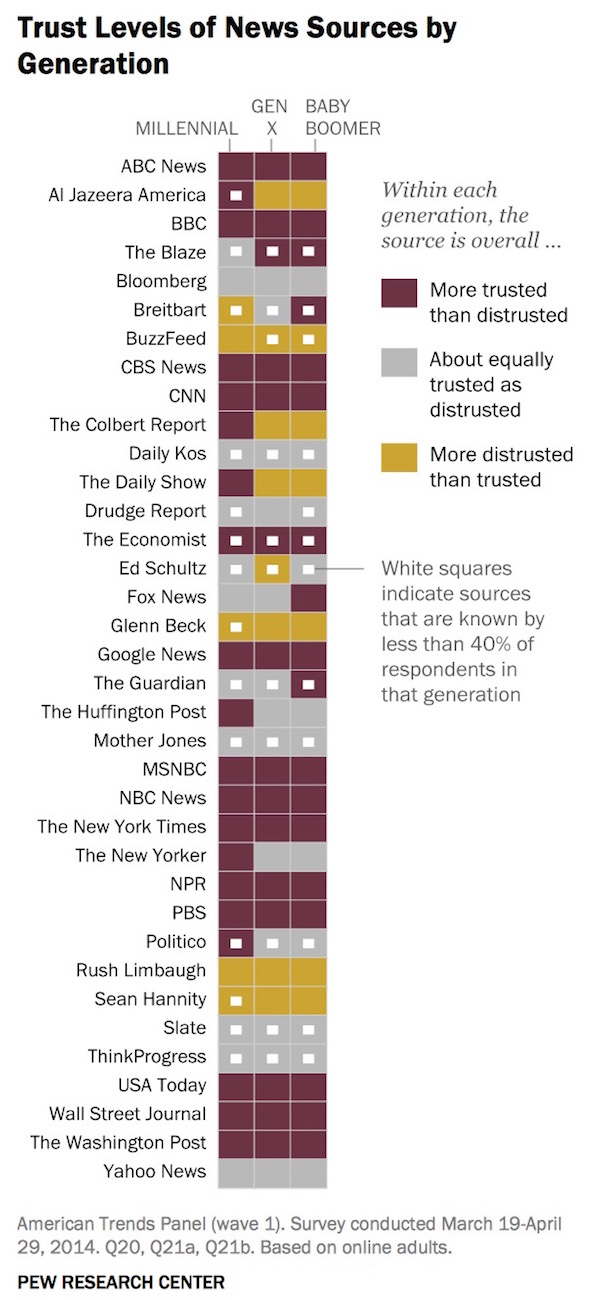
In total, 14 of the 36 sources are trusted more than distrusted by all three generations – a level of similarity not found in the analysis conducted across political ideologies. Four sources are distrusted more than trusted by all three: The Glenn Beck Program, the Rush Limbaugh Show, the Sean Hannity Show and BuzzFeed. Additionally, seven sources are equally trusted and distrusted by the three generations: Yahoo News, Mother Jones, Slate, ThinkProgress, Bloomberg, Drudge Report and Daily Kos.
No matter the generational differences, it’s obvious that social media, especially Facebook, has become a key way for people to consume politics news, a trend that will become more relevant as younger users become more interested interested in politics. (It is also a trend of interest to local TV stations reliant on massive political ad spending every two years; if campaigns see their targeted audience moving off the tube, ad dollars would naturally follow.)
When it comes to Facebook, 31 percent of baby boomers who are on Facebook said most of the posts they see align with their political views. 21 percent of Gen X and 18 percent of millennials said they mostly see posts that match their own politics.
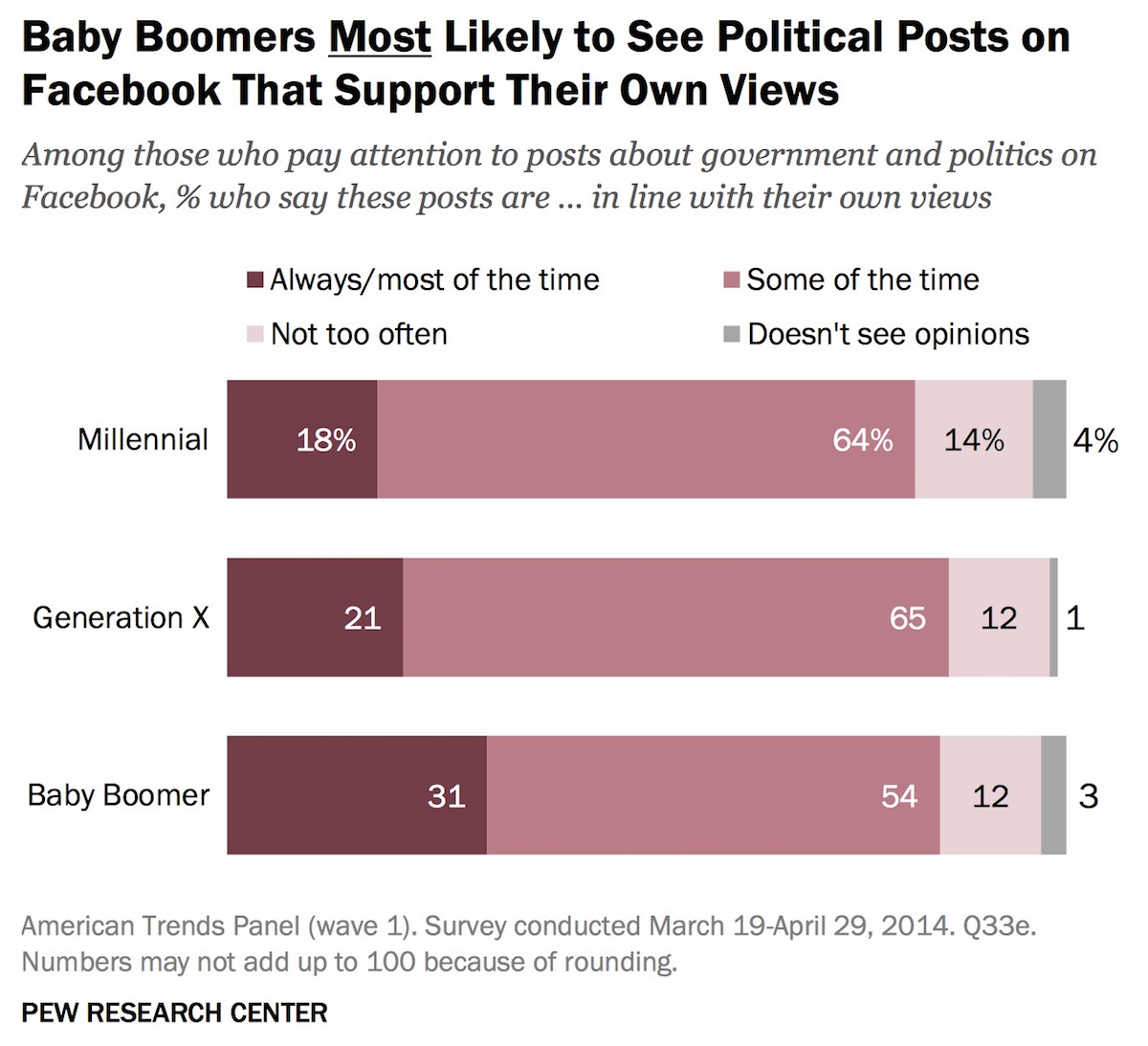
“We are only beginning to understand the complex interactions of personal choice, friend networks and algorithms in the social media space,” Amy Mitchell, Pew’s director of journalism research said in a statement. “As the research continues, these data suggest there are fundamental differences in the ways younger and older generations stay informed about political news.”